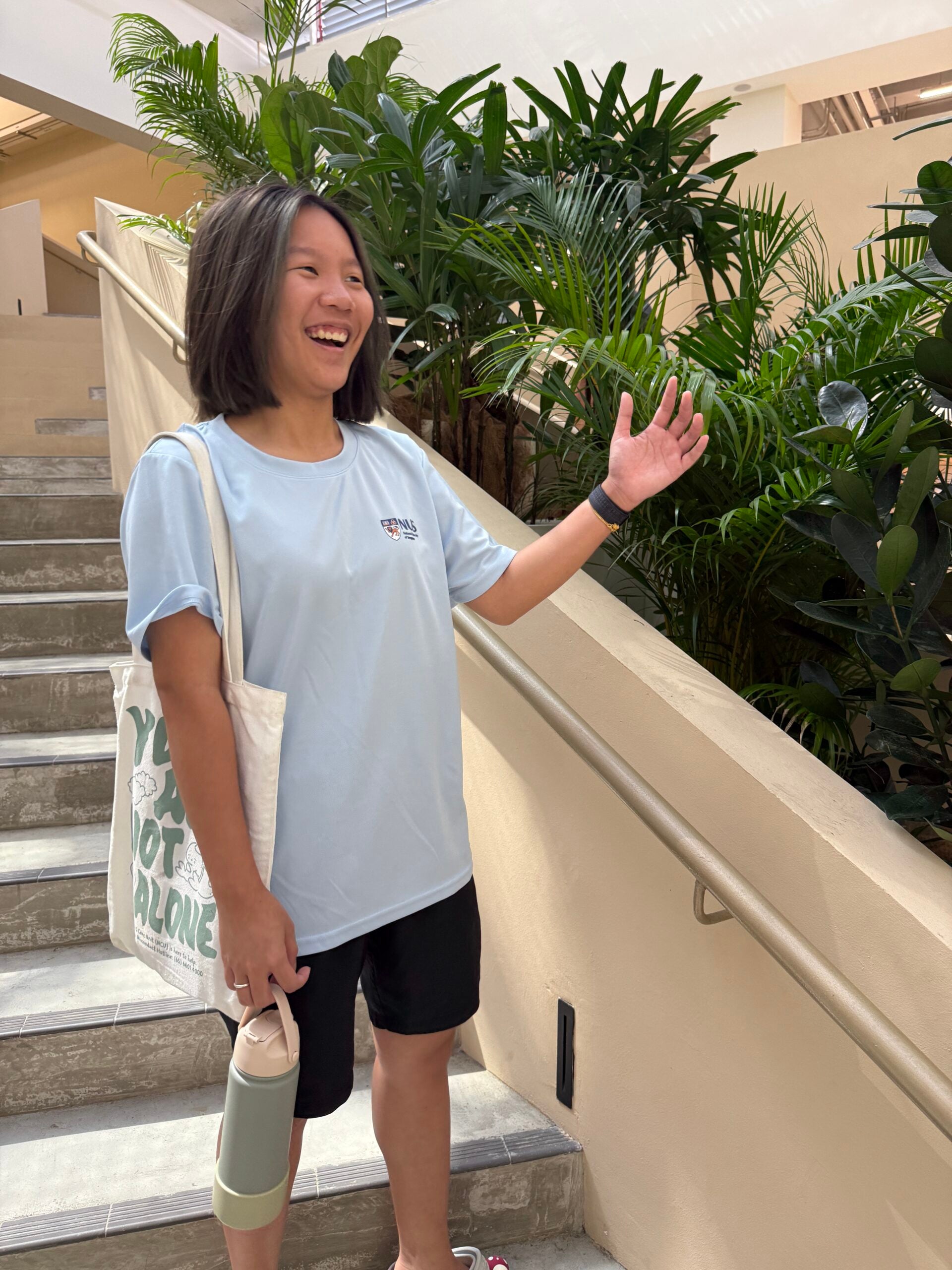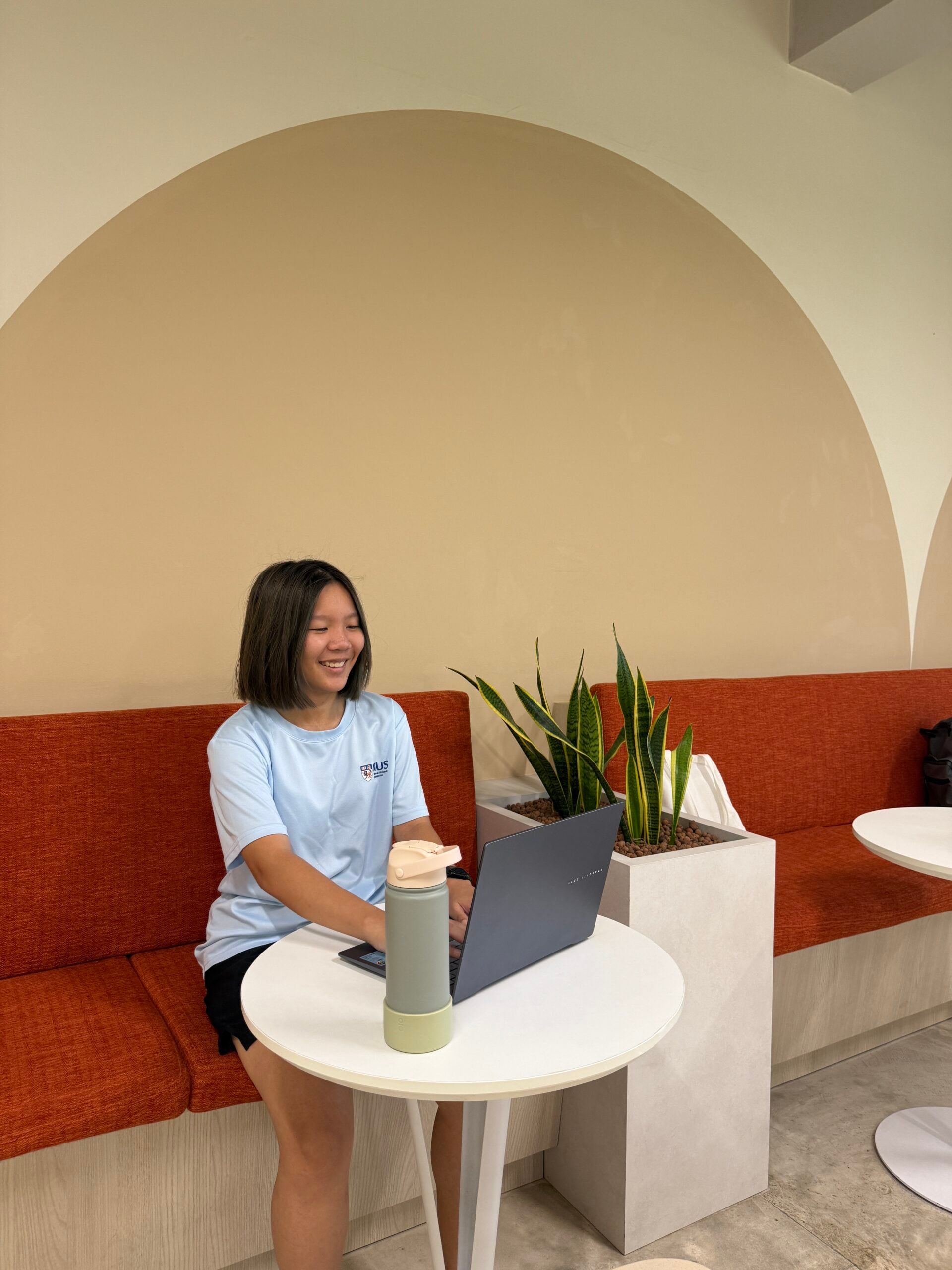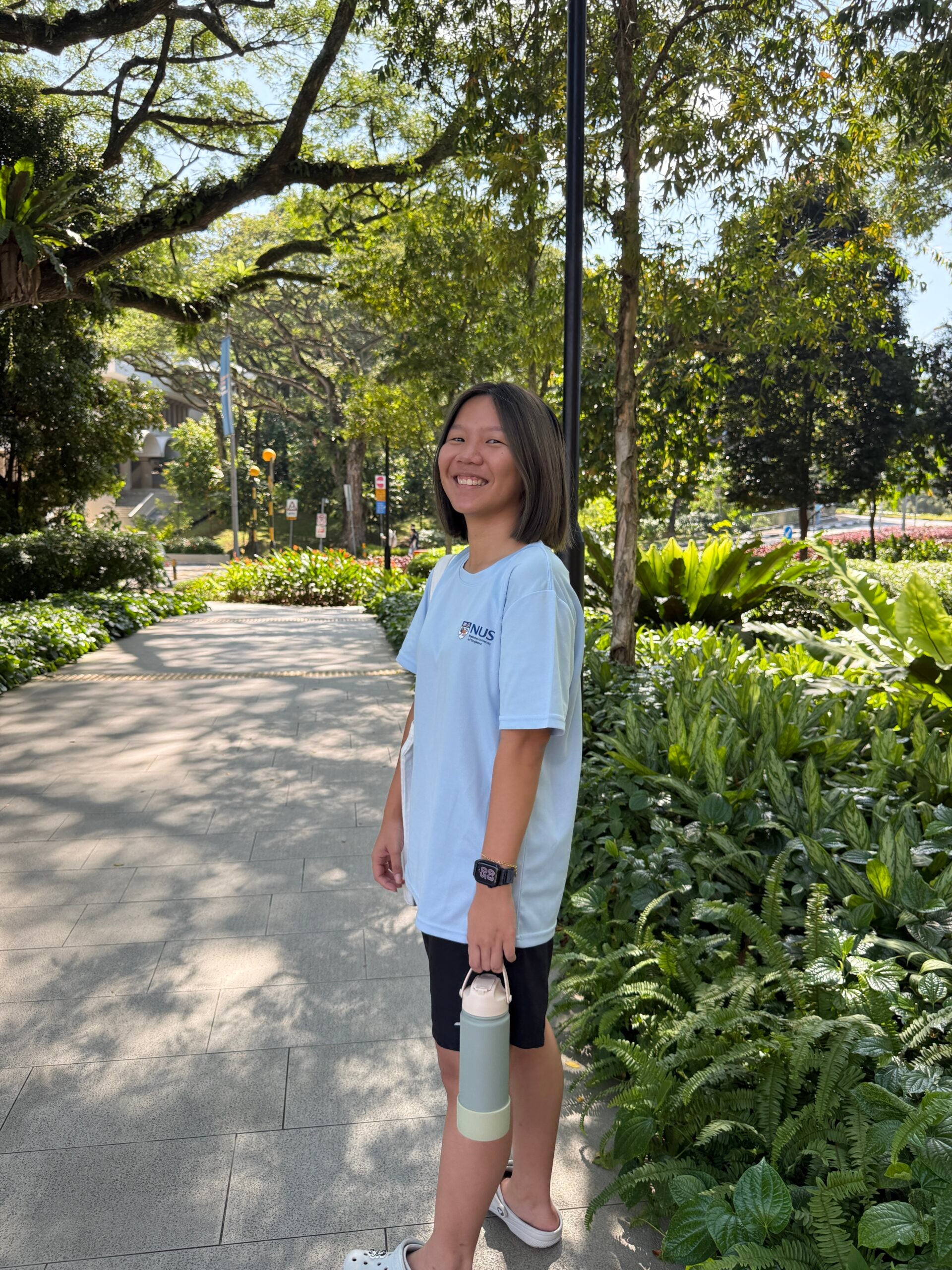Concluding My First Semester in NUS


Angie, a first-year Business Administration student at NUS, shares how she navigated language worries, homesickness, and the pressure of keeping up, all while finding her rhythm in a new environment.
STARTING THE JOURNEY

Q: Why did you decide to study in Singapore and why NUS?
Angie: I wanted to study in Singapore. My first choice was initially another university, but it required IELTS, and I was too lazy to take another exam! NUS allowed me to use a different English exam from Malaysia, and it has good reputation for business, so I chose NUS.
Q: What was your biggest worry before starting university?
Angie: My English. I came from a Chinese independent high school, where we spoke Mandarin for lessons. I was afraid that I could not speak properly or understand the academic content as well as abbreviations or acronyms people used during conversations.
Q: How did things turn out once school started?
Angie: It was surprisingly manageable. The first few weeks of classes were e-learning, so I could watch the recordings with subtitles. If there were words I did not understand, I just used Google Translate. After a few weeks, I got used to the academic vocabulary and was able to cope better.
Q: What about when it came to speaking in class?
Angie: For business students, class participation is important, so I tried to be brave in answering questions. It was daunting at first, thus I started with the easier questions that have fixed answers, which helped build confidence as I would know that my answers are correct. When you keep speaking, your English gets better naturally.
SETTLING IN
Q: Did you have any adjustment issues coming to Singapore?
Angie: Not really. I am from Malaysia, and the culture is quite similar. The only difference is language from Chinese to English. It was not a big problem for me in other aspects.
Q: Did you feel homesick at first?
Angie: Yes, in the first two or three weeks. I believed this may be common amongst all international students. But once school started getting busy with assignments and presentations, I realise that I did not have time to think about it. Joining activities and keeping myself meaningfully occupied really helped.
Q: Which activities did you join?
Angie: I joined the Malaysian Students’ League and my Pioneer House interest group. One of my favourite activities is climbing, which I do with my friends from Pioneer House once a week. It is very flexible. You go only when you are free which is fitting of my schedule.

Q: Did you find it easy to make friends?
Angie: Honestly, not at first. I am quite introverted, so it was hard for me to make friends when I first came in. But I did form my first friendships with people I met through orientations. I would advise new students to join their faculty or house orientation camps. It is much easier to make friends there.
Q: Do you feel a sense of belonging now?
Angie: Honestly not yet, but it is not something I worry about. I came here to study. Maybe by Year 2 or 3, I will feel that sense of belonging, but I am not putting pressure on myself over it.
CHALLENGES AND COPING
Q: What has been your biggest challenge so far?
Angie: Class participation (laughs). The topics I learn now are similar to what I studied in high school, just that everything is in English. So academically wise I am coping fine, but speaking up is tough.

Q: How do you deal with the stress of assignments and exams?
Angie: My time management is quite good. I check what assignments are due and finish them early. I do not let two assignments pile up in one week. When I have time, I just clear them as early as possible. If the workload is high, sometimes I do sacrifice a bit of sleep to ensure things could be completed within the time frame. It is important to have the discipline and not procrastinate while you can.
Q: Do you ever feel overwhelmed and how do you cope with it?
Angie: Sometimes, but I just remind myself that not everything is worth stressing over. For example, if an assignment is only 5% of the grade, I tell myself not to overthink it. There are many assignments, I will just move on to the next one.
Q: Is there anyone that you talked to when you feel stressed?
Angie: My high school friends back home. I do not like calling so I text them quite often. We chat or complain about small things from our respective lives even though we are distance away. It makes me feel better after venting.
GROWTH AND LEARNING
Q: Is there anything new you learned about yourself since joining NUS?
Angie: I never thought I could do publicity work! In one of my activities, I was chosen as the publicity project lead even though I did not apply for this role and do not have any background knowledge. I had to learn Photoshop and Illustrator from scratch through YouTube. Over time, I got used to it. At first, I am only at the passing mark, but now I think I am at least a 75! (laughs)
Q: Have your study habits or mindset changed after joining NUS?
Angie: Not really. I have always been disciplined since I was 16. I like planning my week and finishing things early. I think my current system works best for me and I do not feel the need to change it.
Q: Any advice you would give your past self before starting university?
Angie: Join the Orientation Camps! You can make friends early, and it also gives you the chance to apply for exco roles next year. I missed my major orientation because it was too early in May, but I would still tell my past self to go if possible.
STAYING CALM THROUGH EXAMS
Q: With the first exams of NUS coming up, are you nervous?
Angie: Not really. Personally, I know that being nervous does not help with my performance. In high school, I used to get so anxious I could not sleep before exams. Now I like to treat it like another quiz that is worth more marks, so that I can perform my best without feel too stressed over it.
Q: How do you keep yourself motivated?
Angie: I set short-term realistic goals for each week, such as finishing an assignment or doing my cheat sheet. Once I tick them off, I feel accomplished, and ready to move on to the next task.
Q: What helps you recharge?
Angie: Sleep! I aim for eight hours whenever I can, though sometimes I only get four. But I know that both work for me and I still feel energised with four hours. I strongly recommend everyone to experiment and understand their own sleep patterns to discover their optimal amount of rest, and stick to it.
FINAL WORDS
Q: Last, is there anything you want to tell students who are nervous about exams?
Angie: Sure! Perhaps I will summarise them in a quote (laughs).
“Don’t be so stressed. Trust yourself.
If something feels tough,
it may be tough for everyone else too,
so don’t put too much pressure on yourself.
Just do your best, and sleep well!”
- Angie


